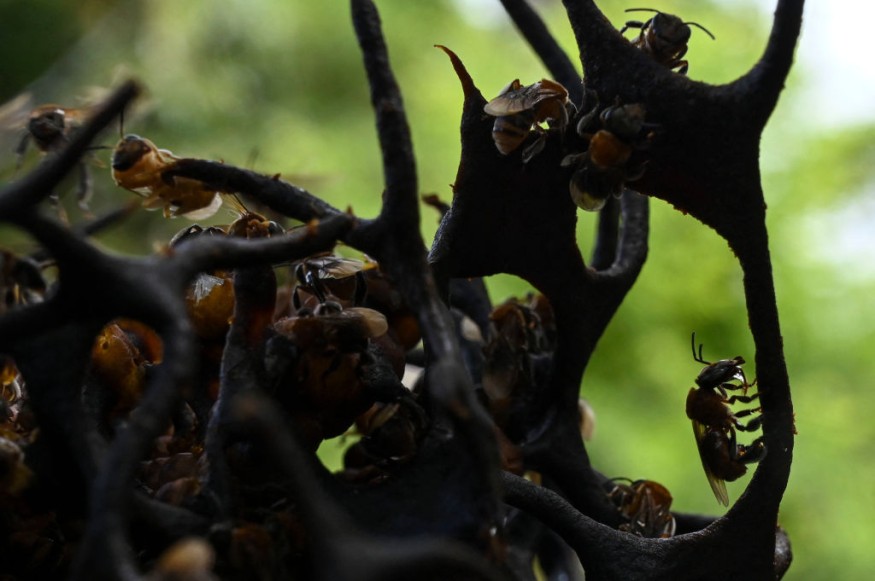Ohio man Austin Bellamy, 20, was reportedly climbing up a lemon tree on August 27 to help his friend trim its branches before he accidentally disturbed a bee nest.
As a form of response, the pollinators launched a sting operation against him, receiving 20,000 bee stings and ingesting 30 of the winged insects, according to reports.
Austin underwent a coma following the rare bee attack of such magnitude.
After several days, the Ohio resident woke up from his coma on August 31.
Local sources said the 20-year-old is expected to recover from incident, which occurred at 11:00 a.m. at a home in Union Township in Brown County, Ohio. .
Four other people at the same household were injured in the bee operation.
The casualties were taken to different hospitals in the area.
Previous research claimed bees only attack humans to defend their colony but they also go on offense if they are disturbed outside their nest.
However, there are also instances of unprovoked attacks.
Health authorities reported that a number of residents in the United States have died from bee attacks for the past two decades. These attacks also come from hornets and wasps, including the notorious "murder hornets."
Ohio Bee Attack

Details of the Ohio man's ordeal were revealed by his family and first responders.
During the onset of the incident, Austin's mother Shawna Carter, revealed that her son was harnessed in the tree which prevented him from escaping the onslaught, as cited by USA Today.
The Ripley Fire Department also told US media outlet that its Fire Chief Tony Pfeffer and Captain Donnie Koewler had to cut man out of the tree.
Austin was transferred to the University of Cincinnati Medical Center, where doctors later found that in addition to being stung thousands of times, he had also ingested some of them, according to Carter.
It must be noted that he was placed in a medically induced coma shortly after arriving at the Cincinnati hospital, while doctors are working to remove the ingested bees through Austin's throat.
Road Towards Recovery
During an update through an online crowdfunding page, Carter said Austin is still in the hospital with breathing problems.
He is still unable to walk and his oxygen keeps going down, as cited by The Guardian.
Furthermore, Austin also suffered kidney failure from the attack.
Still, his family is reportedly expecting his health will come back to normalcy.
African Killer Bees
The fire department also told the mother that the insects were also later identified as African killer bees, according to the Independent.
These bee species are like the common honey bees, which can cause skin infection, pain, swelling, and itching, as well as an allergic reaction.
According to the Centers for Disease Control and Prevention (CDC), a total of 1,109 deaths from wasp, hornet, and bee stings were recorded between the years 2000 and 2017, resulting in an annual average of 62 deaths.
Approximately 80% of the reported deaths include males.
Related Article : [VIDEO] Bee Stings: Where Getting Stung Hurts the Most
© 2025 NatureWorldNews.com All rights reserved. Do not reproduce without permission.





